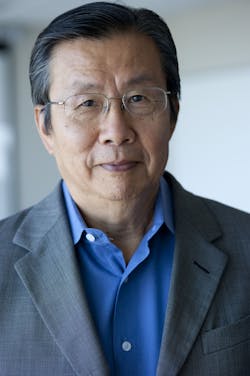
Q: I am having a hard time getting consulting assignments in my retirement. What could I do to improve traction?
A: Maybe "consultant" does not properly describe what you do. I think of a consultant as highly paid by a company over a short time for his expertise and insights in a specialized area. Your resume indicates to me you have been an excellent project manager broadly knowledgeable in the laser/optical space; and my guess is you are looking for a part-time but steady job, or short-term projects that are well -defined in scope. You may get more inquiries if you present yourself as seeking temporary employment because that accurately describes what you are looking for, and implies you are not expecting to get paid as a high-cost "consultant." You can attend OSA/LEOS/SPIE chapter meetings in your area. You can get yourself listed in the www.i-LEOS.org website, which is the best portal for information in our industry in terms of being informative and easy to use.
In times of economic uncertainties, companies often add only temporary personnel as needed to contain their fixed costs. Given the current job market, people who are having a hard time landing a permanent job should shift to looking for temporary openings. Temporary employment can supplement income and also position an individual to get hired when the turnaround occurs.
Q: What curriculum should we be emphasizing at our community college now that there is no longer a shortage of laser engineers?
A: In today's environment, a successful career requires being broadly knowledgeable and having people skills. It is really hard to predict future technology winners and losers, and it is therefore important for undergraduate students to acquire a solid foundation in math, physics, chemistry, biology, some people skills, and an interest in learning so that they can on their own become experts in any area that interests them. That will prepare them well for anything they want to do.
Q: A privately held company offered to invest in our startup company. What should I be looking out for, and are there ways to retain any independence if the corporate investor winds up with majority ownership?
A: I would suggest that you proceed very carefully with an experienced lawyer and/or business advisor on your side. Unlike professional investors, whose sole purpose is making a good return on investment (ROI), corporate investors usually have corporate objectives that may or may not be aligned with yours. Any restriction they place on the company to satisfy their own objectives can significantly diminish the upside of your company and sometimes make you unattractive to other investors. They may want the first right of refusal when you sell your company, most favored nation in pricing, exclusive rights to your products, board observation rights, and even a predetermined formula to buy the company.
My Incubic partner, Judy O'Brien, suggests there actually are ways of structuring board seats and voting requirements to give minority shareholders control. For example, it is not uncommon to have a board structure where the common stockholders elect two directors, the preferred stockholders elect two, and the two classes together elect the fifth director. You can then provide that certain types of actions require approval of both classes of directors or supermajority votes (for example, four votes to approve something such as an acquisition of the company). The problem is that these votes are vetoes that prevent an action from occurring and not affirmative rights to force something to happen. You can also structure common/preferred voting approval requirements that give minority shareholders some rights. The problem here is that preferred stock is generally convertible into common stock so the holders of preferred can convert and vote as common stockholders.
About the Author
Milton Chang
MILTON CHANG of Incubic Management was president of Newport and New Focus. He is currently director of mBio Diagnostics and Aurrion; a trustee of Caltech; a member of the SEC Advisory Committee on Small and Emerging Companies; and serves on advisory boards and mentors entrepreneurs. Chang is a Fellow of IEEE, OSA, and LIA. Direct your business, management, and career questions to him at [email protected], and check out his book Toward Entrepreneurship at www.miltonchang.com.
